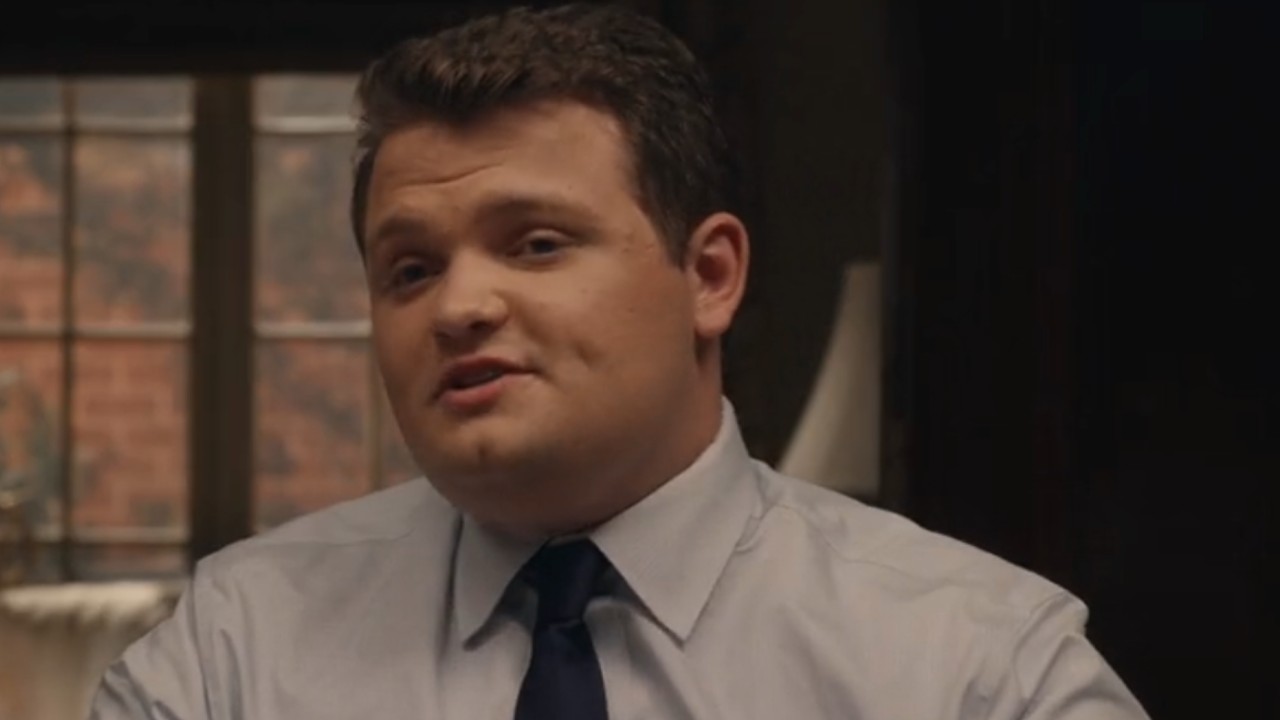He's loud and volatile. He's profane and poetic. He's Dom Hemingway, one of the most thrilling thugs ever set to screen.
Written and directed by Richard Shepard, Dom Hemingway is a wicked and wild comedy that follows its titular anti-hero (Jude Law) through the catastrophic business of adjusting to life on the outside after 12 years in prison. A safe-cracker with magic hands and a big mouth, Dom is a classic crook with a personal code of ethics, and an insatiable thirst for sex, drugs and death-threatening risks. With his loyal pal Dickie (Richard E. Grant), Dom strives to make sense of modern London, and reconnect with his estranged daughter (Emilia Clarke). But before he gets to any of that, he takes the time to beat the man who married his ex-wife. Dom's a man of old-school pride, after all.
Jude Law is remarkable and utterly transformed as Dom. The pretty boy of The Holiday and Closer has vanished, and in his place is a snarling, beefy beast of a man with a hot temper, an ugly mug, and an inexplicable but undeniable sex appeal. His physicality is brutish and virile. His delivery is effusive and gruff. Freed from the demands of looking dashing, Law lets loose and crafts a character who is deliciously deranged, and surprisingly deep.
The first half of Dom Hemingway is like a roller coaster ride of decadence and mayhem, while the second slows as Dom's forced to confront his past mistakes. Incredibly, this shift in gears doesn't kill the narrative's fun, but rather refocuses it. Act one and two set up Dom as a kind of crooked king and legend in his own mind, while the third reveals him to be a fish out of water, struggling to find his place in a world that's moved on without him.
This cold realization gives the story a surprising but welcomed emotional complexity. Yet, the whole journey throbs with verve thanks to Dom's unique brand of exhilarating poetry. For instance, the film begins on a blank screen with the line "Is my cock exquisite?" It's not really a question, but rather the start of a lengthy monologue in which Dom compares his penis to the works of Picasso and deems it worthy of a Nobel Prize. If this doesn't amuse you, Dom Hemingway might not be your kind of movie. But this critic was positively rolling with laughter. By my count, Shepard's script is lewd, lyrical and absolutely hysterical.
This is a career-defining performance for Law, and it's bolstered by stellar supporting turns. Demian Bichir provides cool contrast as steely crime boss Mr. Fontaine. Clarke is vulnerable yet edgy as his infuriated Evelyn. Finally, Grant is downright terrific as Dickie. The Withnail & I star has become a symbol of comic debauchery, and he brings all that into this role along with a sly performance that underlines the implications of Dom's recklessness at every turn. Together, they made Dom Hemingway perfectly hilarious.
Admittedly the plot rambles, but that structure suits its hero, who isn't much for plans as he is for spur of the moment action. So, we follow him from a prison where he is a rock star to a villa where he is a good soldier, to a London where he is a deadbeat dad. At his highs or lows, he's a joy to behold, and in that way reminded me intensely of another classic British cad, Michael Caine's original Alfie. He too was a bad man audiences adored in spite of themselves, and in spite of his terrible, terrible missteps. Like Alfie, Dom is a distinctly English anti-hero, the descendant of Shakespeare's eloquent clowns with a seductive patter and a self-destructive streak. His path to happiness is strewn with obstacles, but part of the joy is the journey after all.
Your Daily Blend of Entertainment News
Ultimately, Dom Hemingway is flat-out fantastic. Thick with turgid machismo and spewing low-brow verse, it's an unapologetic ode to a brand of masculinity now thought to be old-school and a bit ridiculous. But above all else, it's very, very fucking funny.
Staff writer at CinemaBlend.


